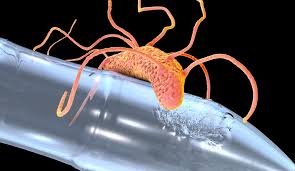In a groundbreaking discovery that could transform global efforts to combat plastic pollution, researchers at the University of Texas have identified a genetically engineered strain of bacteria capable of rapidly breaking down polyethylene terephthalate (PET) plastic—one of the most widely used and environmentally persistent materials in the world. According to findings published in the prestigious journal Nature, the research team successfully modified a common soil bacterium to secrete specialized enzymes that digest PET plastic, converting it into harmless byproducts in just a few days.
PET plastic is used extensively in everyday items such as water bottles, food packaging, and synthetic textiles, making up roughly 20% of the world’s plastic production. Its durability, while advantageous for manufacturing, poses a significant environmental challenge, as conventional PET can take up to 450 years to naturally decompose. However, in controlled laboratory settings, the engineered bacteria were able to degrade nearly 90% of PET plastic samples within just 96 hours—a revolutionary leap in speed and efficiency.
The enzymes work by breaking the long-chain molecules in PET into smaller, non-toxic compounds such as terephthalic acid and ethylene glycol, which can then be safely reabsorbed into the environment or potentially reused to make new plastic products. This process offers a closed-loop solution to plastic waste, aligning with principles of the circular economy and reducing the need for virgin plastic production.
The discovery comes at a time of growing urgency over the global plastic crisis. An estimated 400 million tons of plastic waste are produced annually, yet less than 10% of it is effectively recycled. Much of the rest ends up in landfills, incinerators, or the ocean, where it harms ecosystems and human health. The potential to scale this bacterial solution could dramatically reduce the accumulation of plastic waste and its long-term environmental impacts.
While the current breakthrough has been demonstrated in lab conditions, researchers are now working to optimize the bacteria for real-world applications. This includes developing industrial-scale bioreactors, enhancing enzyme stability under variable environmental conditions, and ensuring the safety and containment of the modified organisms.
If successful, this innovation could mark a turning point in waste management and sustainability, offering a viable, low-cost, and eco-friendly alternative to traditional recycling methods and helping to stem the tide of plastic pollution worldwide.


















Successventuresgh
Very awrl
hossman
good
Caramel
??????
Walker
Waoo
Happy
Nice it will be ecofriendly
KHANDY
Good
Suhuyini
Okay
Elizabeth
Okay
Marena25
Good